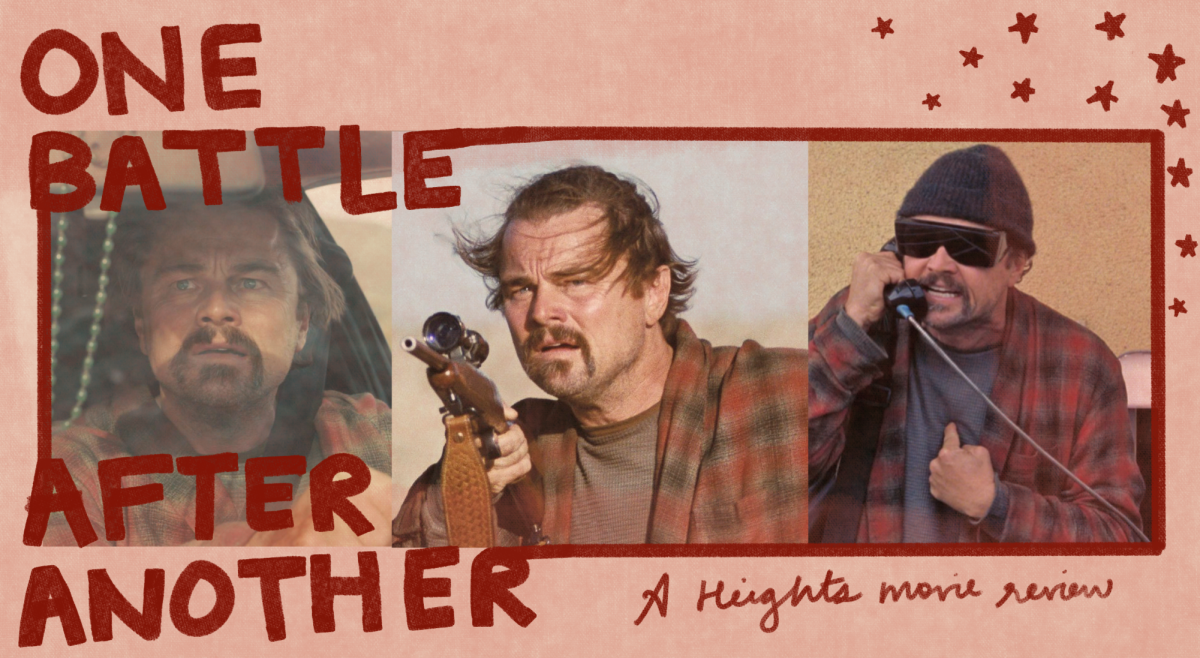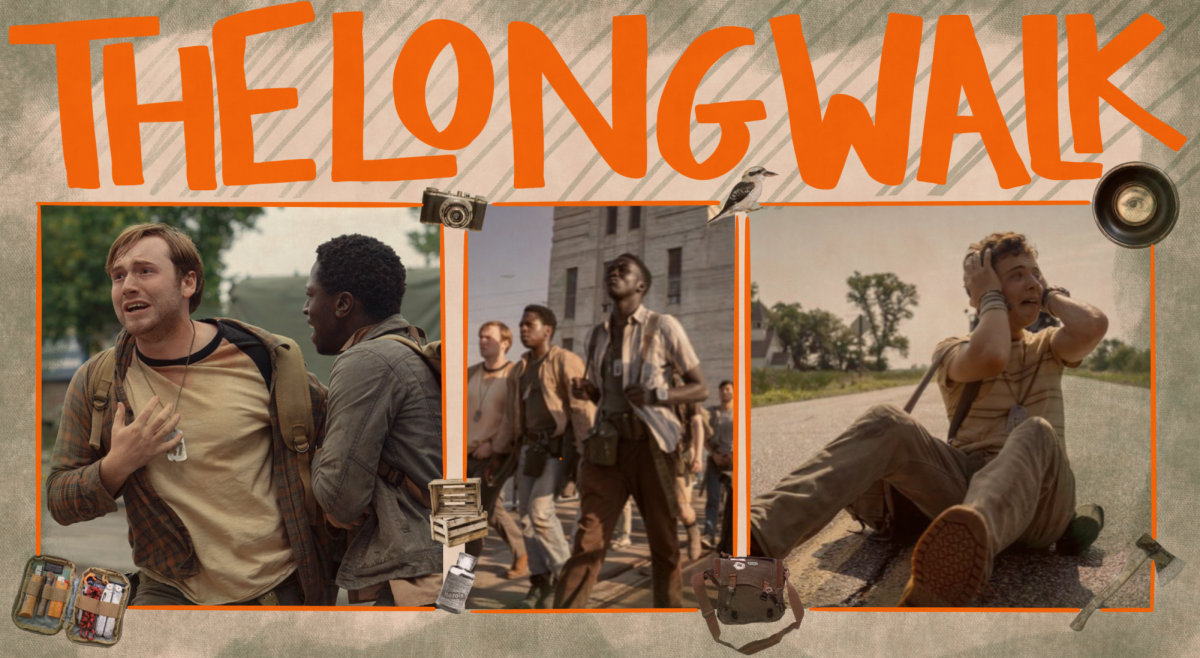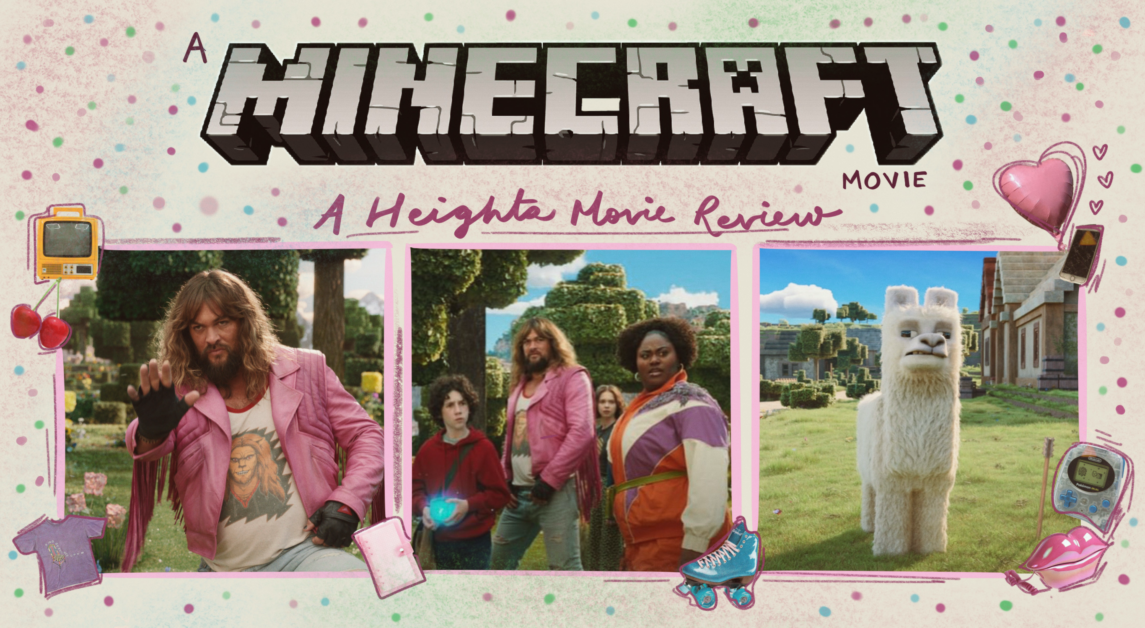★★★★☆
Paul Thomas Anderson made his Hollywood return with One Battle After Another, which released nationwide on Friday. The film is a politically charged, satirical action thriller starring Leonardo DiCaprio as Bob Ferguson, an ex-revolutionary, now stoner, who is forced back into the fray.
The picture features familiar faces, both past and present. Teyana Taylor stars as the runaway mother and daughter of revolution, Perfidia Beverly Hills. Sean Penn plays Col. Steven Lockjaw, the crazed military antagonist who may be more involved with the plot’s inner workings than he originally presents himself to be.
The film also stars Regina Hall, Benicio del Toro, newcomer and child actor Chase Infiniti, and Alana Haim. Jonny Greenwood composes the score, while cinematographer Michael Bauman lends the project a striking visual palette.
Early in One Battle After Another, the audience is plunged into a daring mission led by the rebel group “French 75.” In freeing detainees from a heavily policed holding center, the film touches on a major issue in contemporary politics: the battle at the border. Perfidia commands the group with brash authority, while Bob follows her lead, trying to prove himself.
In the opening minutes, the ideological tension between Perfidia’s uncompromising zeal and Bob’s more hesitant attitude is apparent. With a child on the way, Perfidia’s driving spirit to tear down the system won’t be put to rest, refusing to put family over her call to revolution.
The film often veers into absurdist, darkly comic territory with Bob’s plotline—offbeat stoner humor, shaped by his cannabis-induced haze, shame over his past, and struggles of being a single father.
Bob and Perfidia’s child, Willa, looms as a generational bridge, a reason for their sacrifices. While Perfidia took the route of destroying the oppressive fascist state and suffered the consequences for it, her child will have to bear the consequences.
Taylor’s Perfidia is both magnetic and volatile, embodying the sacrifices one must make fighting for a cause they deeply believe in. During pregnancy, she’s still storming offices and issuing commands with ferocity and vulnerability.
Due to her mother’s actions, Willa inherits a world defined by conflict and unrest, placing her in the greatest danger throughout the story. Yet through Bob’s never-ending perseverance, the film grounds its chaos in the desperate lengths a father will go for their child.
One Battle After Another sees the ’90s Starboy step into character as an old man. He leans strongly into comedic self-deprecation, as Bob is often the bumbling weed-addicted fool, reluctant to shine, which allows some of the film’s lighter moments to land amid the tension.
Penn, as Col. Lockjaw, does an amazing job of creeping the audience out. The white supremacist, power-abusive portrayal gives the audience a reason to hate him a little bit more. His dialogue with Perfidia, twisted and perverted, has you waiting for the scene to end—the guy is that bad.
One Battle After Another arrives at a moment of fierce cultural polarization, and Anderson seems intent on reflecting, amplifying, and challenging that reality. Some might deem it “woke,” while others will use it as a rallying cry for change.
Early reviews are overwhelmingly positive. The film is already among the year’s highest rated, praised for its deep-rooted “we don’t care what you think” audacity. Some critics hint at overreach or thematic density, but ultimately, it’s Anderson’s boldest and most accessible work to date.







